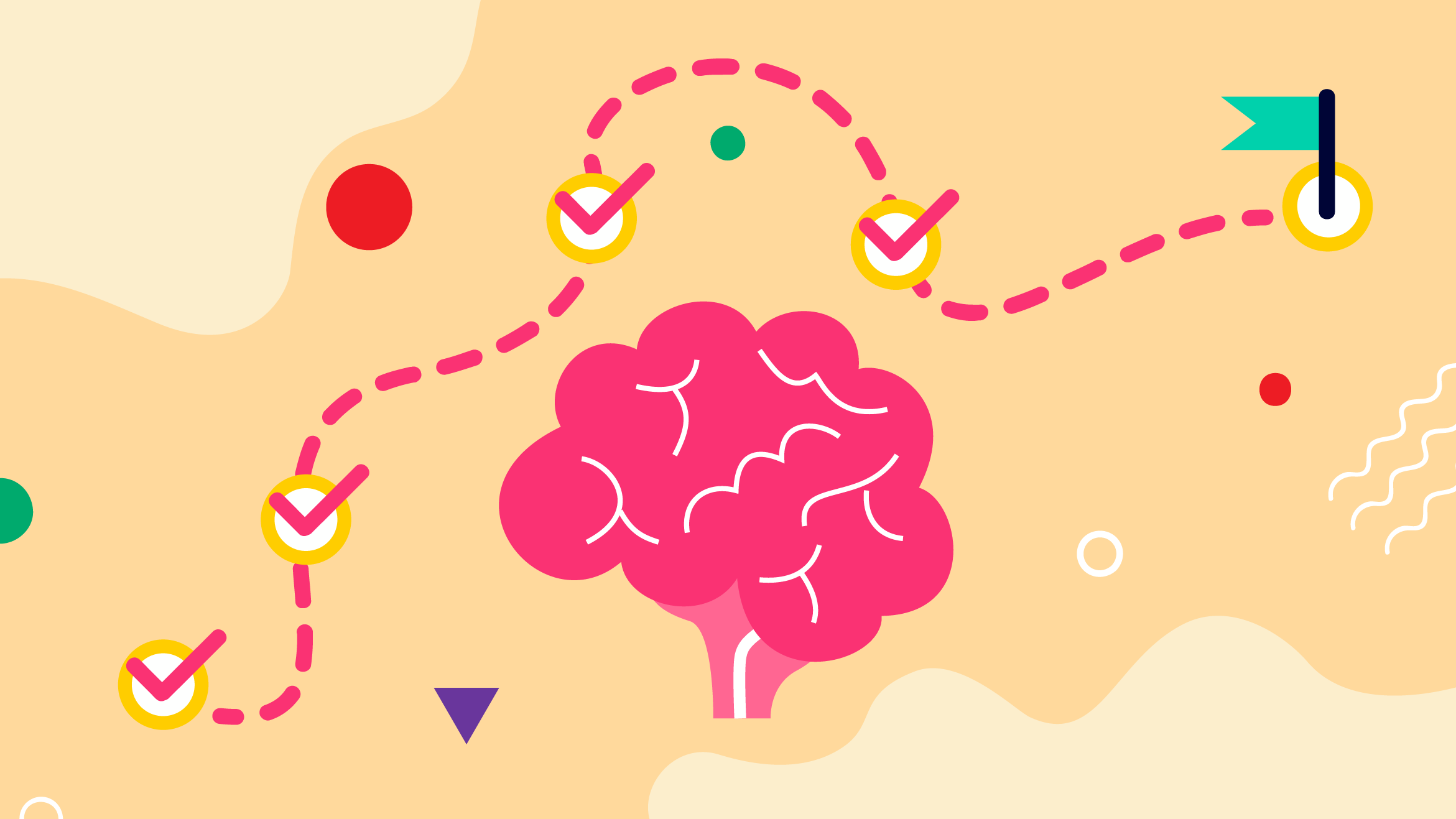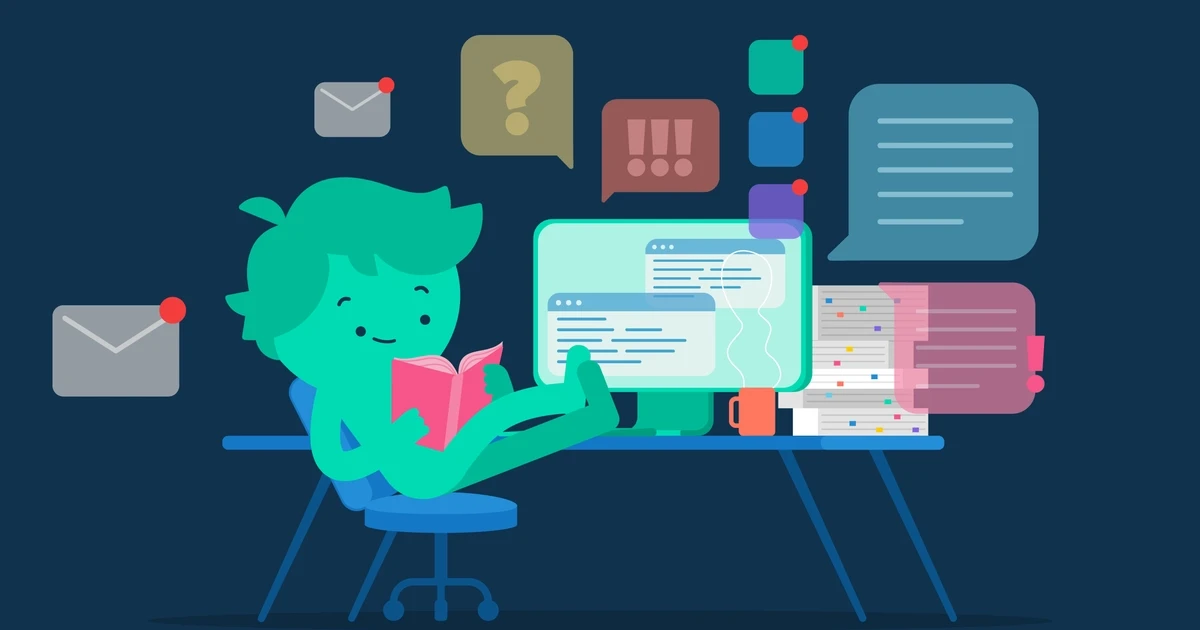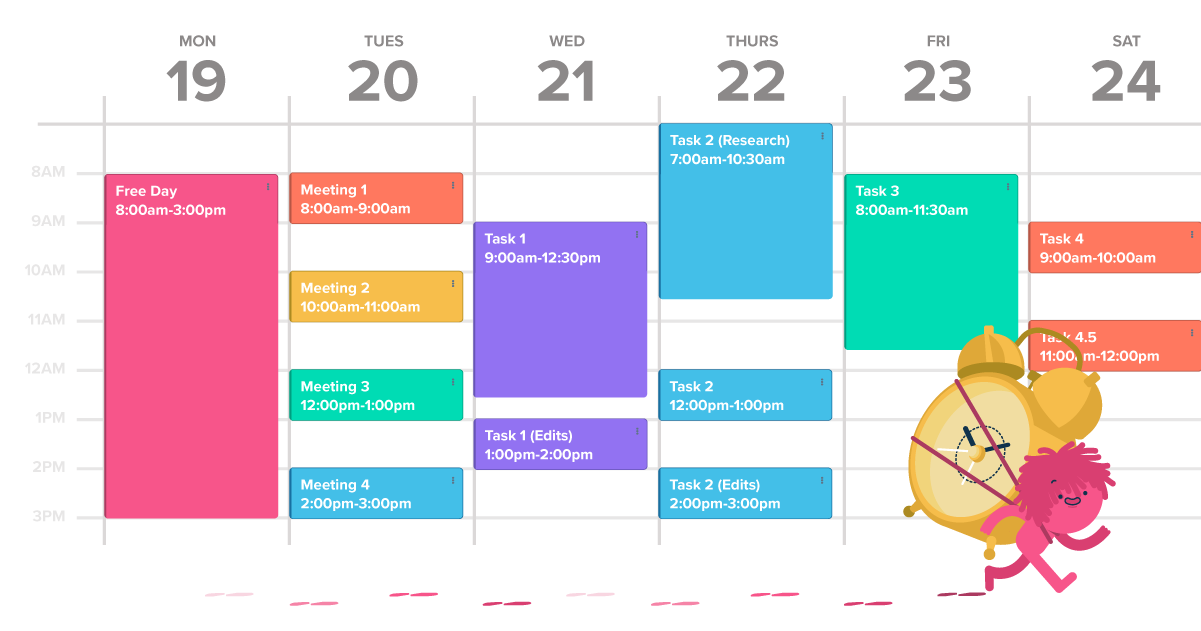So, You Need to Know How to Learn Faster?
Welcome to our crash course on fast learning! And I’m not joking; we might be crashing against some hard truths here! Starting to learn something new is hardly ever easy. Be it a new language, maths problems, or a musical instrument; it takes time and dedication to master a skill. And yet, time is somehow the last thing we have these days. It might be because time is terribly anti-social and unreliable – it always runs away from us whenever we need it!
The tragedy of the commons aside, there are ways to learn things faster. Whether you need a boost to get over beginners’ troubles or speed up your exam prep, learning faster includes several major stages: understanding the learning process, finding your whys, and actually learning. Without further ado, let’s go!
Strengths of Fast Learners
Over all these years of schools and universities, it has come to light that students struggle with certain things when learning:
- Getting to the start line. Seriously, procrastination is a real problem for all of us!
- Retaining information and focus. It’s undeniable that our attention span has become shorter with (toxic?!) social media around us!
- Putting what’s learnt into practise. Hmmm, and isn’t that the most important aspect of learning in the end?
Still, there are those people who simply breeze through their studies, always have time for a drink with friends, and do sports on top of it all. You’ve seen them. They are rare, but it’s hard not to be in awe of them when you meet them. These people are not divinely blessed by some superior intellectual powers; they just know how to overcome these hurdles!
Fast Learning Skills of Successful People
Fast learners have certain strengths, and with some practise, you can have them too!
- Fast learners know their learning styles. If you’re a visual learner, you can keep listening to a lecture as much as you like, but you’ll be achieving slower and less satisfactory results than you would if you simply looked at graphs, images, and mind maps. It’s important to know which learning style works for you and play to that strength. If you’re a kinaesthetic learner, warm up to taking notes. On the other hand, if listening to lectures and explanations helps you memorise things, start recording them.
- They contextualise knowledge. It’s not all about remembering a bunch of facts. Learning is about fitting that knowledge somewhere. In neurolinguistics, we love to call this schematic learning: Whatever information you need to know fits some scheme that already exists in your mind, like packing all stray files on your desktop into their designated folders. When you study, try to relate that to what you already know. Form associations and think up your own examples from real life.
- Fast learners use the right tools. Hey, it’s the twenty-first century, and we no longer have to walk 137 kilometres through the blistering cold and scorching desert to reach schools and libraries (don’t forget that you might need to fight bears, make your own shoes out of their skin, and hunt and gather to survive). We have EdTech tools at our fingertips. You need to find the right apps that have easily accessible explanations and note-taking and mind-mapping tools to help you learn faster!
- Successful learners know their why. Setting goals in studies (and life) is extremely important, as it makes starting something so much easier. Be it a treat you’ve promised yourself at the end of it, praise and respect you’ll gain, or the sheer joy of knowledge, finding your own source of motivation will get you places.
Now for Those Fast-Learning Strategies
If you genuinely want to increase the speed at which you’re learning something, you will have to develop a set of long-term, consistent strategies. There are no magic tricks to get you to learn the whole syllabus the day before an exam because fast learning is all about your habits.
- Get used to note-taking. When you take notes by hand, multiple spheres of your brain are activated, which promotes higher attention. What is more, note-taking involves paraphrasing and restructuring, which forces you to engage with your materials (unless you’re just mindlessly copying, which I strongly advise against. When you catch yourself doing it, double back to see what you missed). Work on your personal shorthand style and a system of highlighting information (e.g. colour-coding it based on importance).
- Distribute your learning. When you try to cram everything, failure is the only thing likely to happen fast. Spare yourself the drama and plan out your study sessions. Divide your work into reasonable chunks over a period of time. When you do this, you’re training your brain to be active every day, which, in turn, makes learning easier. Soon enough, you’ll notice you’re getting better and more efficient at studying.
- Try out mnemonics. Multiple ways make remembering things easier – from mind palaces to mind maps. Develop your own memory techniques to fall back on when you need to remember lots of information.
- Revise regularly! I cannot stress this enough. Space out your revision sessions to track how much you remember and what you need to address again. Repeated revisions are proven to facilitate long-term memory.
- Take breaks. Your best studying happens when you’re relaxed and refreshed. Make sure you’re taking regular breaks to keep yourself in a good mindset for studying. Do some exercises or play a quick game to give your brain a break.
Fast-Learning Techniques to Overcome Learning Hurdles
Now, remember those three hurdles many students face? There are simple ways to circumvent them with these simple techniques:
- Procrastination. Most of the time, we procrastinate because we feel overwhelmed – the task looks too daunting, there’s too much to learn, or you’re avoiding it because you don’t understand it fully. The best way to address this is to divide a big problem into smaller ones and tackle them one at a time. If you need to learn the whole book, set yourself a daily goal of 10 to 15 pages and some revision days, and watch how quickly you progress! So, ask for help or read some motivational quotes if you need them, and get down to work!
- Retaining information. We are chronically distracted, aren’t we? Oh, just that email, and just this message, and hmm, why not a scroll or two on Instagram? And poof! Half the day is gone. To use your brain to the fullest, drop your social media (which has been shown to reduce your attention span anyway!), sit in a designated study space, and tell yourself that you CAN and WILL focus on your work for an hour or two. It doesn’t take longer than that (and you need breaks after all), so there are no excuses!
- Applying what you’ve learnt. Educational institutions put a lot of weight on reproductive knowledge nowadays; there’s no denying that. As a result, students prefer to learn their stuff by heart and just roll with it, which makes learning all the more difficult. When you’re studying, try to apply new concepts to familiar situations. If you’re learning biology, see how certain processes affect the environment/body/mind. When doing research for your thesis, always take notes and think about how those ideas fit your hypothesis.
Additionally, you can always ask for feedback, find a coach, or use our study app to help you with anything you don’t understand. Learning doesn’t have to be drudgery!
To study more efficiently and effectively, you can use learning apps like StudySmarter!
How to Learn Anything Fast
Now you might be wondering if those strategies and techniques apply to all subjects? The answer is YES (with some variations!). Depending on what you’re learning, you may have to tweak your study plans and approaches, but the main principles stand: spacing out sessions, dividing materials, revising, and taking breaks. Now let’s see.
You Ask: How to Learn a Language Fast
Any new beginning is hard, but what I have found most prolific in language learning (and over my life, I’ve learnt six to seven different ones!) are the following tips:
- Write down vocabulary lists and revise them ALL. THE. TIME.
- When you see a new word, check what it means. Invent an example sentence (preferably a real-life example).
- Learn grammar meticulously. Don’t just wing it on a feeling – the feeling comes when you already know a lot. Make an effort to learn systematically.
- Have I mentioned repetition? Revise and repeat everything!
- Expose yourself to the language: books, movies, music, full immersion in a study exchange – anything you get your hands on!
- Find a language buddy. Language tandems are a great way to study AND meet new people!
How to Learn Maths Fast
Ha! There’s a good one. I believe that you don’t just learn maths; you practise it! When you learn a new concept, equations, or functions, make sure that you always review what you’ve done, do your homework, and re-do the assignments from the lecture. Re-do!? As if once wasn’t enough!? Yes, indeed! Because usually, new stuff begins with easy examples, and starting from there will solidify your understanding of the concept that much better.
When learning maths, do your best to grasp broad concepts: from imaginary numbers to geometrics, find that overarching idea against which each task is set up. If you need help, make sure to ask. Check out our maths explanations or find a tutor to help you out. Maths is the most objective subject out there – your work really does matter in reaching the correct answer, so make sure you know all the necessary steps. PS Listening to music helps when doing maths!
Fast Learning – Key Takeaways
If I’ve burst some of your fast-learning bubbles, I do apologise, but fast learning is all about slowly-built habits. You cannot expect to become a fast learner overnight, but you can start building better habits today. The key tips I have for you include:
- Plan your study sessions and study regularly.
- Divide your materials over time.
- Revise often and address blanks and gaps immediately.
- Remove all distractors.
- Take regular breaks.
Practice does, indeed, make perfect, so try, try, try until you succeed!
Frequently Asked Questions (F.A.Qs)
There are foolproof ways to learn any language fast: Write down vocabulary and revise it regularly, learn basic grammar principles, invent real-life examples with new words and grammar, surround yourself with the language through music, movies, and books, and find language buddies.
To learn Spanish fast, take a class at your school or university. Listen to Spanish music and watch Hispanic/Latinx movies (I totally recommend In the Heights!). Find a language study buddy or do a language exchange/tandem to get the chance to speak Spanish as soon as possible.
Arabic is a complicated language, so it might be wise to get a tutor and sign up for some lessons. Practise your writing and pronunciation as much as possible. Try to find Arabic movies and music to get attuned to the language. Learn new words, get a good dictionary or language learning apps, and dig up everything you can about the culture.
To learn French fast, sign up for some French lessons. Apply to do a student exchange in France and surround yourself with the language as much as you can. Practise your spelling and pronunciation, as well as conjugations. Find someone to practise with and use the language as much as you can.
Japanese is a tough language and will require some extra effort from you. Take lessons at school or university or find a tutor. Watch anime and listen to Japanese music. Learn Hiragana and Katakana (loooooots of repetition here!) and practise as much as you can! Pay particular attention to pronunciation as the smallest sounds can make huge differences in meaning! Learn about the culture to get more motivated to study.
The best way to learn fast is to develop consistent habits that train your brain to learn. Study regularly and in reasonable chunks. Take breaks. Revise what you’ve learnt. Always ask for feedback, and try to apply what you’re learning to something you’re familiar with.
The best way to learn a new programming language fast is to start programming! Learn the basics, watch tutorials online, or attend a class on that programming language. As soon as you know those, start writing short tasks and progress slowly to more complex ones. Analyse errors and be super-pedantic about every tiny detail!
Kids learn faster than adults because they have less input. Children’s brains are still developing, and everything is new to them, making it easier to remember. Additionally, they usually have far fewer worries than adults, and relaxed minds learn faster than fraught ones!
How we ensure our content is accurate and trustworthy?
At StudySmarter, we have created a learning platform that serves millions of students. Meet the people who work hard to deliver fact based content as well as making sure it is verified.

Gabriel Freitas is an AI Engineer with a solid experience in software development, machine learning algorithms, and generative AI, including large language models’ (LLMs) applications. Graduated in Electrical Engineering at the University of São Paulo, he is currently pursuing an MSc in Computer Engineering at the University of Campinas, specializing in machine learning topics. Gabriel has a strong background in software engineering and has worked on projects involving computer vision, embedded AI, and LLM applications.
Get to know Gabriel




